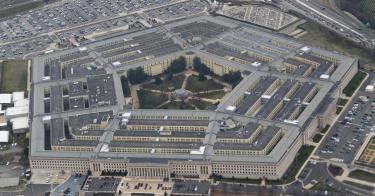It was a knockout of a story. The Washington Post revealed that the Pentagon “funneled” much of the $1 billion it received with the Cares Act to defense contractors and spent more than $310 million of the funds on medical supplies and equipment. This was, the story alleged, a blatant disregard of legislative intent. But that was not the case.
Indeed, legislative intent was mostly absent from the Cares Act. The funds for the Pentagon were to be used under the Defense Production Act, and Pentagon lawyers have since confirmed that every dollar spent under this provision met the Cares Act brief guidance that such funds must be used to “prepare for, prevent, and respond to the coronavirus.”
Under Secretary of Defense Ellen Lord has reinforced that message in her testimony before the Senate Armed Services Committee. She noted that all the funds spent under this provision went either to health and medical resources or to elements of the defense industrial base that were directly threatened by the coronavirus, fully meeting the mandates of the law. As Lord pointed out, fighting the pandemic on a national scale takes more than just buying masks and gloves. If the defense industry comes out of this crisis damaged, then it would take years for it to recover.
Recent Pentagon and White House reports describe in detail the fragility of the defense industrial base, which includes companies from our small businesses to multinational corporations, that have numerous points of vulnerability. In many cases, only one supplier of critical items, from ship propellers to missile tubes to or rocket fuel, remains standing.
Even before the pandemic, some of those suppliers had operated on the edge of solvency, harmed by defense cuts, the dwindling manufacturing base, and cheap overseas labor. A report two years ago by a federal task force noted the desperate situation. The industrial base, it said, “faces an unprecedented set of challenges” that threaten the ability of the Defense Department “to be ready for the fight tonight” in this crisis.
If we lose elements of the defense industry to the coronavirus, that could have devastating implications with our national security. But none of this could dissuade some top House lawmakers from launching investigations on how the Pentagon spent the money. Several Democrats wrote Defense Secretary Mark Esper saying that they were looking into the matter. Not to be outdone, another 40 groups jumped on the bandwagon also calling for government investigations and that the money be rescinded.
All of this is unnecessary. During her Senate testimony, Lord described how the Pentagon had precisely targeted the funds to “regions severely affected to sustain vital domestic industrial base capabilities and to spur local job creation.” The spending protects American workers, she added, and ensures that our industrial base survives the coronavirus.
Lord made clear that this should not be news to anyone on Capitol Hill. The Pentagon, she noted, kept the Congress fully informed on spending plans, providing lawmakers a report earlier this year with the details. One illuminating moment at the recent hearing came when Lord responded to Senator Timothy Kaine. Despite giving interviews to the Washington Post journalists while they were researching their story, she said, none of the perspectives and facts from the Pentagon appeared in the story.
The Cares Act contained about $2 trillion in federal funding, including $100 billion for hospitals, $20 billion for veteran health care, $16 billion for the strategic national stockpile, $11 billion for treatments or vaccines, and $4 billion for the Centers for Disease Control and Prevention. Indeed, the Pentagon had spent about $600 million to shore up the parts of the defense industry that were most severely threatened by the pandemic, preserving jobs and capabilities essential to our national security.
Protecting the defense industrial base from the effects of the coronavirus is a wise and legitimate investment in the national security of the United States. Lawmakers best serve the country when they take a broad view of our needs and act accordingly, even in the midst of an election year.
This piece originally appeared in the Hill on 10/9/20



